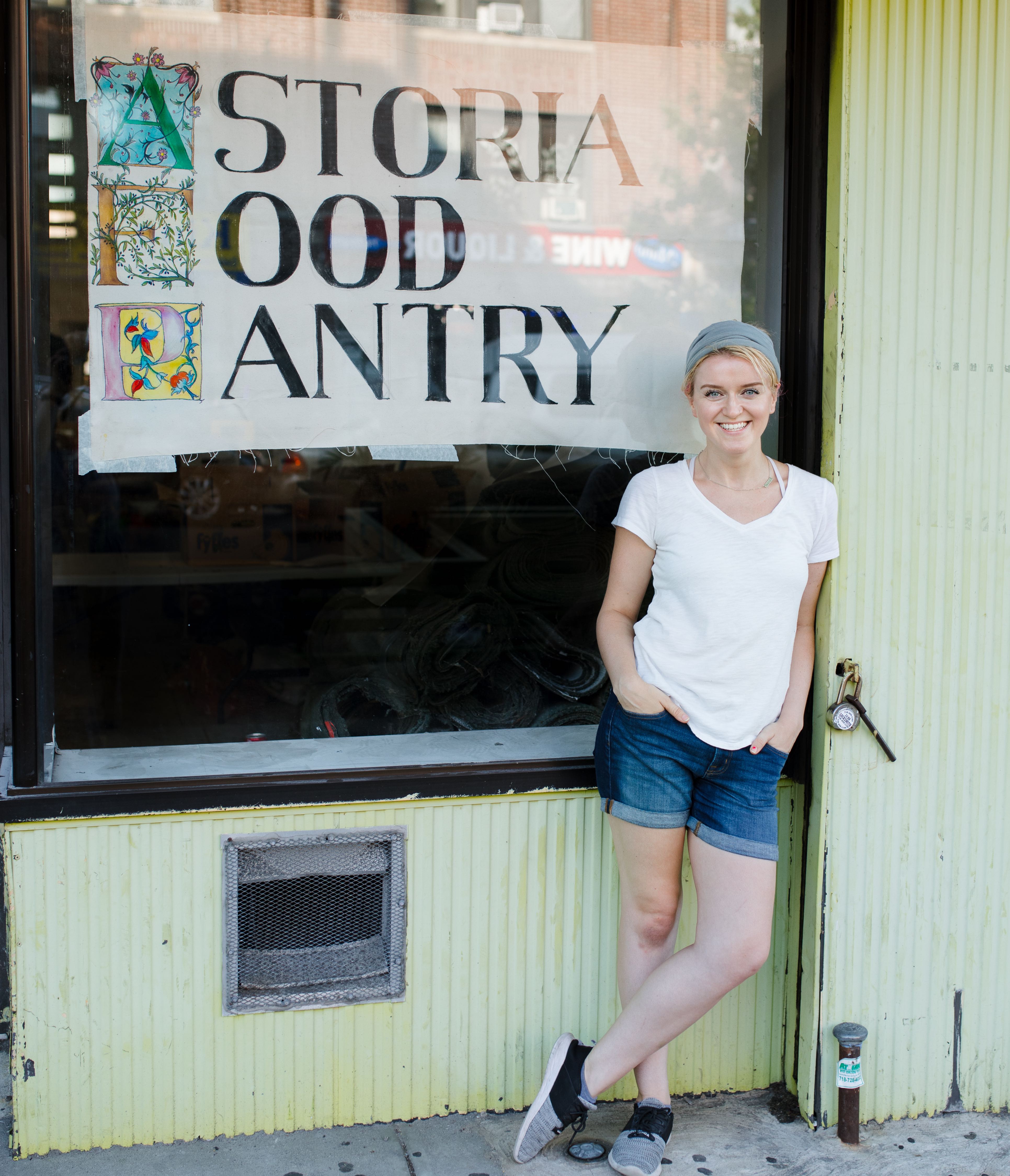Astoria Food Pantry
A grocery store for the people, where everything is free and no ID is required.
A space for the community, where we can share our resources and organize for everyone's needs to be met.
Leader
Catherine Fireman
Location
28-14 Steinway St Astoria, NY 11103
About the project
The Astoria Food Pantry is a mutual aid project that provides high-quality fresh food to 200 people per week. We do this entirely through individual donations - we don’t receive support from the government or any major food banks. This independence allows us to not require anyone to show an ID or answer questions about their household. This means we can serve everyone in our community, even if we don’t speak their language or they want to keep their information private.
As well as a food pantry, our space has operated as a shared center for other community efforts. In the past 6 months, this space has been used by a wide number of local organizing and mutual aid projects:
- Astoria Tenant Union
- Astoria Mutual Aid Network
- The People’s Bodega NYC
- The Rolling Library
- The Free Store
- The Connected Chef / Lifeline Groceries
- Queens Democratic Socialists of America
These partnerships have allowed us to host a variety of events and services:
- Distributions of necessities: food, masks, clothing, diapers and formula, book fairs
- Political organizing: tenant organizing, sign making for protests, tabling/flyering for issue campaigns
- Support with social services: help with filling out government forms, housing counseling, translation
- Ensuring everyone is counted: census outreach and voter registration drives
We are creating a space to help Astoria share our resources - sharing our food, clothing, books, knowledge, conversations, and experiences with each other.
The Steps
In 2021 we plan to both continue the programs that we started in 2020, as we know reliability is important in preventing food insecurity. We also plan to expand our operations to some new projects and to improve the experience of community members who use our services.
Continued Operations:
- Our weekly food pantry, serving groceries and meals to at least 200 people per week.
- Special food distribution events, such as summer barbecues and Thanksgiving pies.
- Distributions of other basic needs like masks, diapers, and hygiene products.
- Our partnerships with all of the efforts described above, such as housing counseling, translation services, free clothing store, free book fair, poster-making for protests and political action.
Expanded Operations:
- An outdoor community fridge, so neighbors can share food directly with each other.
- A pay-what-you-can dry foods store, where neighbors can buy rice, beans, and more on a sliding scale.
- Scheduling options for pick ups, so neighbors don’t have to wait in line at all.
- Expanded services and support for our homeless neighbors.
Why we‘re doing it
The number one reason we provide food to the community is because if we don’t, our neighbors could go hungry. We are facing unprecedented unemployment, and due to anti-worker and anti-immigrant policies many of our neighbors aren’t able to qualify for even basic government benefits like unemployment and food stamps. Meanwhile the city government’s food distributions were exactly what you’d expect from a school cafeteria - families were getting cold sandwiches to get through the week, when they really needed full bags of groceries. We looked around and saw countless neighbors who were falling through the cracks in a time when our safety net is needed the most.
We started this project in Astoria because this is our home, and living here we saw the need around us. Astoria had food insecurity even before COVID-19, and much of it is related to other issues: gentrification that has pushed rents up, the defunding of NYCHA and the negligence in its upkeep, the lack of protections and benefits for contracted workers, negative health effects from our power plants and highways, the highest rates of stop-and-frisk of any NYC police precinct - the list of injustices goes on. We help with food every week because it’s what we are able to provide materially, but we don’t limit ourselves to the issue of food, because we know that our people have needs beyond it.

